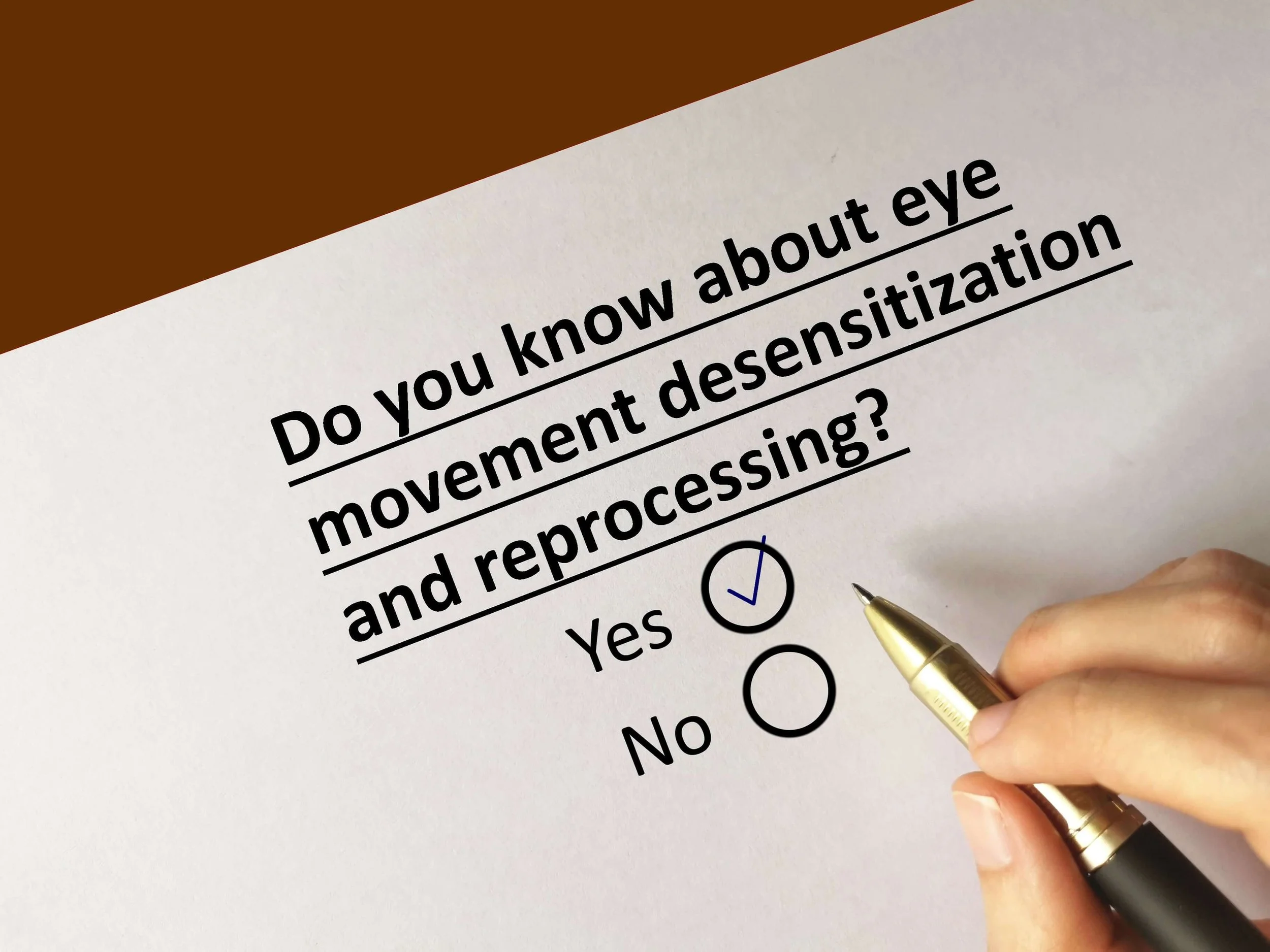EMDR Therapy Side Effects
In the realm of psychological treatments, Eye Movement Desensitization and Reprocessing (EMDR) therapy emerges as a beacon of hope for individuals grappling with the aftermath of traumatic experiences. Developed by Francine Shapiro in the late 1980s, EMDR therapy is predicated on the premise that processing distressing memories can alleviate psychological stress. While its efficacy in treating post-traumatic stress disorder (PTSD) and other anxiety-related conditions is well-documented, it's crucial for both practitioners and clients to be cognizant of the potential side effects of EMDR therapy. This article delves into the nuances of EMDR therapy side effects, offering insights into what individuals can anticipate throughout their therapeutic journey.
Understanding EMDR Therapy
Before we unpack the side effects of EMDR therapy, a brief overview of its mechanics is in order. EMDR therapy is an eight-phase treatment that aims to alter the way distressing memories are stored in the brain, thereby reducing their lingering impact on an individual's psychological well-being. The therapy involves the client recalling traumatic memories while simultaneously focusing on an external stimulus, typically bilateral eye movements, guided by the therapist. This process is believed to facilitate the brain's inherent ability to heal from psychological trauma.
Common Side Effects of EMDR Therapy
1. Increased Emotional Sensitivity or Instability
One of the immediate side effects of EMDR therapy may include heightened emotional sensitivity or instability. As clients engage with and process deeply embedded traumatic memories, it's not uncommon for them to experience a temporary intensification of emotions such as sadness, anger, or fear. This emotional turbulence is generally short-lived and is a natural part of the healing process, as it indicates that the brain is actively working to reprocess traumatic events.
2. Vivid Dreams or Nightmares
Some individuals undergoing EMDR therapy report experiencing vivid dreams or nightmares. These dreams may directly relate to the traumatic memories being processed or may seem entirely unrelated. This phenomenon is believed to be a manifestation of the brain's efforts to integrate and resolve distressing memories during sleep.
3. Physical Sensations
During or after EMDR therapy sessions, clients might notice unusual physical sensations, such as lightheadedness, dizziness, or fatigue. These sensations are typically transient and are thought to result from the intense emotional and cognitive processing that occurs during therapy.
4. Temporary Worsening of Symptoms
It's important for clients to be prepared for a potential temporary worsening of symptoms. As EMDR therapy prompts the reprocessing of traumatic memories, the initial heightened recall of these memories can lead to an increase in PTSD symptoms or anxiety levels. However, this is often a necessary step in the journey toward long-term healing.
5. Changes in Memories
Clients may also observe changes in their perceptions of traumatic memories. Some memories may become less distressing, while others might be remembered differently. This alteration in memory perception is a positive indication that EMDR therapy is effectively diminishing the negative charge associated with traumatic experiences.
6. Feeling Drained or Exhausted
The intense emotional processing that EMDR therapy facilitates can leave individuals feeling physically and emotionally drained or exhausted after sessions. This can be attributed to the mental effort required to engage with and reprocess traumatic memories.
7. Temporary Increase in Dissociation
Individuals with a history of dissociation may experience a temporary increase in dissociative episodes during the course of EMDR therapy. This is particularly relevant for clients with complex trauma or dissociative disorders. Therapists trained in EMDR therapy are typically prepared to handle such reactions and can adjust the therapy to ensure the client's safety.
8. Changes in Relationships
As individuals process their trauma and start to experience shifts in their self-perception and worldview, they may also notice changes in their relationships. This can include feeling more distant from certain people or feeling closer to others. Such changes can be challenging but are often part of the broader transformation that healing from trauma can entail.
9. Heightened Sensitivity to Stimuli
Some people may find that they become more sensitive to environmental or sensory stimuli during the course of their therapy. This could manifest as an increased startle response, sensitivity to light or sound, or a heightened awareness of one's surroundings. These reactions are generally temporary and decrease as therapy progresses.
10. Emotional Numbness
In some cases, individuals might experience periods of emotional numbness or detachment. This can be a defense mechanism triggered by the reprocessing of traumatic memories. Over time, and with the guidance of a therapist, these feelings of numbness should subside as the individual works through their trauma.
Managing Side Effects of EMDR Therapy
While the side effects of EMDR therapy can be challenging, they are generally manageable and are considered a part of the therapeutic process. Here are several strategies to cope with these side effects:
Preparation: Therapists should thoroughly prepare clients for potential side effects, ensuring they understand that such reactions are normal and temporary.
Support: Clients should be encouraged to maintain a strong support system outside of therapy sessions. Friends, family, or support groups can provide emotional stability and reassurance.
Self-Care: Engaging in self-care practices, such as mindfulness, exercise, and adequate rest, can help mitigate some of the emotional and physical discomfort associated with EMDR therapy.
Open Communication: Maintaining open lines of communication with the therapist is crucial. Clients should feel empowered to share their experiences of side effects, allowing the therapist to adjust the treatment plan as necessary.
Interested in EMDR Therapy? Contact Mindful Today to Get Started
EMDR therapy can treat a range of conditions including but not limited to PTSD, anxiety disorders, depression, phobias, and more, offering many individuals a path toward healing and recovery. However, like any effective therapeutic intervention, it comes with its set of challenges, including potential side effects. By understanding and preparing for these side effects, clients and therapists can navigate the EMDR therapy process more effectively, ensuring a safer and more supportive journey toward psychological well-being.
Here at Mindful, we are committed to offering accessible and effective online EMDR therapy, tailored to meet the unique needs of the residents of Washington. We bring this transformative therapy to you, ensuring comfort, convenience, and confidentiality. For those living in Washington who are curious about the transformative potential of EMDR therapy or seeking to overcome personal challenges, our team is here to support you every step of the way. Contact us today to get started or to learn more about our services. Let us help you navigate your path to recovery with compassion, expertise, and a deep commitment to your well-being.
FAQs
-
The duration of side effects varies between individuals, but most side effects are temporary and tend to diminish as the brain continues to process the traumatic memories outside of therapy sessions.
-
Yes, it's common for some individuals to feel worse before they start feeling better, as EMDR therapy involves processing deeply embedded traumatic memories, which can temporarily heighten emotional distress.
-
EMDR therapy can alter the emotional impact of memories, making them less distressing, but it does not typically change the factual basis of your memories.
-
If you experience severe side effects, it's important to communicate this with your therapist/psychiatrist immediately, as they can adjust your treatment plan or provide additional support to help you manage these reactions.


